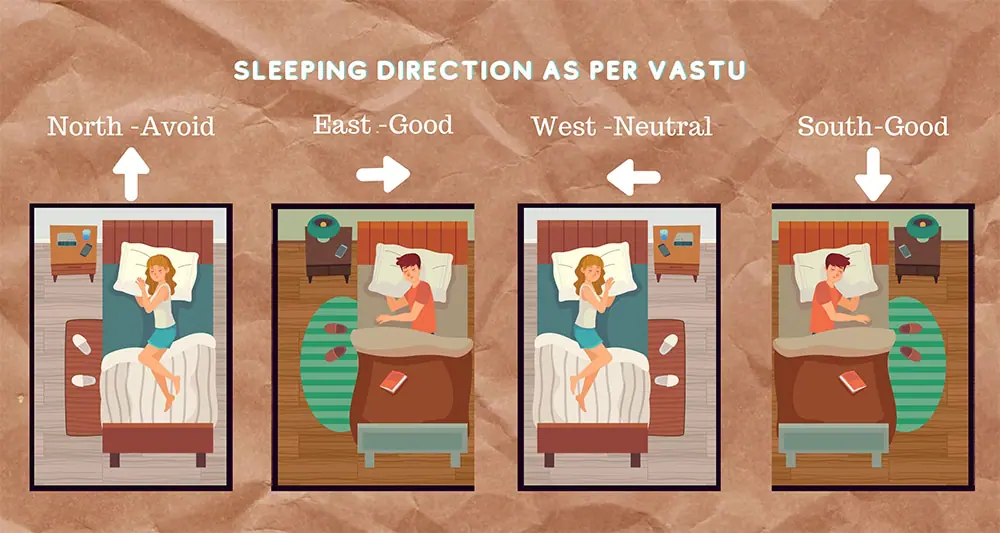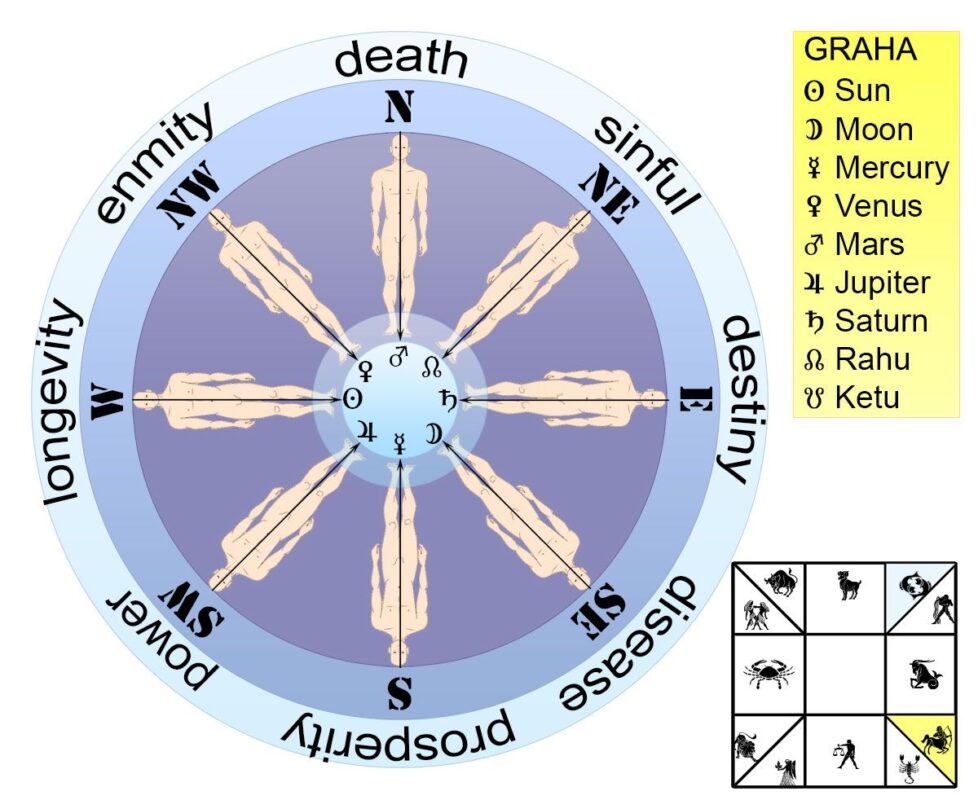
In Vastu Shastra, the ancient Indian science of architecture and building, the direction in which one should sleep and the positioning of the head while sleeping are believed to have significant impacts on health, well-being, and overall energy levels. This system integrates principles of cosmic energy flow and natural elements to harmonize living spaces with the environment. Here’s a detailed 2000-word description covering these aspects:

Why open space is recommended in Vastu Shastra?
Why is it necessary to have an open space around the house?
The concept of open space in Vastu Shastra stems from the idea of allowing positive energy to freely flow in and around the dwelling. Just like fresh air and natural light, open spaces are essential for maintaining a balanced and vibrant atmosphere. These spaces act as conduits for positive energy to circulate, fostering a sense of well-being, harmony, and prosperity.
Having an open space around the house is necessary in various architectural and design philosophies, including Vastu Shastra, for several reasons. Here are some key reasons why open space around the house is important:
Air Circulation: Open space allows for better air circulation around the house. It helps in bringing in fresh air and removing stagnant air, improving indoor air quality and ventilation. Air circulation is important for a healthy living environment.
Natural Light: Open space allows natural light to reach the building from multiple directions. Ample sunlight helps in brightening the interior spaces, reducing the need for artificial lighting, and creating a warm and welcoming ambiance. Exposure to natural light is also beneficial for the occupants’ well-being, mood, and productivity.
Visual Aesthetics: Open space around the house enhances the visual aesthetics of the property. It provides a sense of expansiveness and openness, making the surroundings more pleasing and inviting. Open spaces can create a connection between indoors and outdoors.
Privacy and Buffer Zone: Open space acts as a buffer zone between the house and the neighboring properties or public areas. Sufficient distance from adjacent buildings ensures privacy and minimizes disturbances from noise or other activities. It also provides a sense of personal space and seclusion for the occupants.
Recreational and Leisure Activities: Open space provides opportunities for outdoor activities, recreation, and leisure. It offers space for gardening, playing, exercising, or simply enjoying nature. Having an outdoor space near the house benefits physical and mental health.
Connection with Nature: Open space around the house allows for a stronger connection with nature. It provides the opportunity to incorporate elements like gardens, trees, and landscaping, creating a green and serene environment. Spending time in nature has been associated with stress reduction, improved mood, and overall well-being.
Energy Flow: In Vastu Shastra and other energy-based philosophies, open space is believed to facilitate the flow of positive energy or “prana” around the house. It prevents energy stagnation and allows for a harmonious energy exchange between the indoor and outdoor spaces.
Overall, having open space around the house offers numerous benefits for the occupants, including improved air quality, natural light, privacy, recreational opportunities, and a closer connection with nature. It contributes to a healthier, more enjoyable, and balanced living environment.
Which direction do you have open space in the house?
According to Vastu principles, it is ideal to have open spaces in the north and east directions of a house. The north allows for the inflow of positive vibrations and prosperity, while the east brings in the rejuvenating rays of the rising sun. By embracing these directions for open spaces, you can harness auspicious energies and create a welcoming environment within your abode. If you do not have this kind of arrangement then ask us for remedies to cure this issue.
Is Vastu only applicable on the ground floor?
They do not limit Vastu Shastra principles to a specific floor; they are relevant to all levels of a building, including apartments and flats. Whether you reside on the ground floor or any other level, adhering to Vastu guidelines ensures the optimal flow of positive energy throughout your living space.
Which side should be open as per Vastu?
Vastu Shastra recommends having open spaces on the northern and eastern sides of a building. These directions are considered favorable, as they allow for the entry of beneficial cosmic forces and natural elements. By incorporating open spaces in these specific directions, you can amplify the positive vibrations within your home or workplace.
Why don’t people prefer the ground floor?
Although Vastu Shastra does not discourage living on the ground floor. There is a common belief that ground-floor dwellings are more susceptible to negative energies and disturbances. As a result, some individuals prefer higher floors, as they believe it offers a greater sense of security and tranquility. However, it is important to note that the overall Vastu compliance of the space matters more than the floor level itself.
Should we consider Vastu in the flats?
Absolutely! Whether you live in an apartment or a standalone house, Vastu principles can be applied to enhance the positive energy flow and create a balanced living environment. From the orientation of rooms to the placement of furniture and décor, incorporating Vastu guidelines can significantly contribute to the overall well-being and prosperity of your living space.
Which floor is best in a flat according to Vastu?
While selecting a floor in a flat, the Vastu guidelines suggest that the middle floors, particularly the third to fifth floors, are considered auspicious. These floors strike a balance between being grounded and maintaining an optimal height, allowing for the positive energy to flow harmoniously.
What should we avoid, according to Vastu?
Vastu Shastra emphasizes certain practices to avoid that may hinder the flow of positive energy. For instance, it is advisable to refrain from cluttering the open spaces with unnecessary objects or structures. Additionally, one should avoid placing heavy machinery or storage areas on the northern or eastern sides, as they may disrupt the natural energy flow.
Which floor is best in a flat according to Vastu?
According to Vastu principles, the southwest direction of a flat is considered ideal for the master bedroom. This direction is associated with stability and promotes restful sleep. However, it is important to consult a Vastu expert for personalized guidance and recommendations that align with your specific needs.
In conclusion, open spaces hold immense importance in Vastu Shastra. Serving as gateways for positive energy to enter and circulate within our living spaces. By adhering to the principles of Vastu. 1. we can optimize the flow of positive energy. 2. harmonize our surroundings. 3. create an atmosphere conducive to overall well-being and prosperity. Let us embrace the wisdom of Vastu Shastra and design our homes and offices in harmony with these ancient principles.



